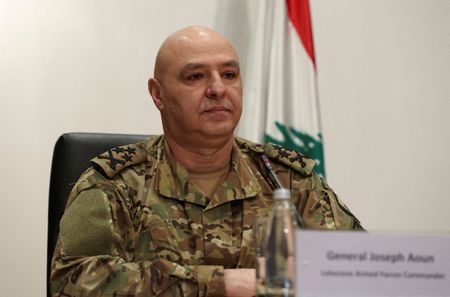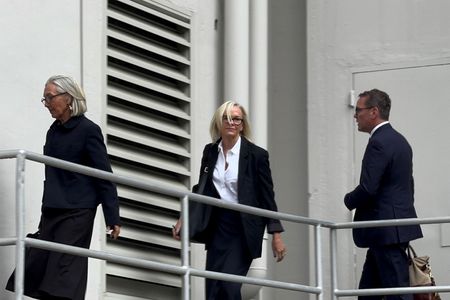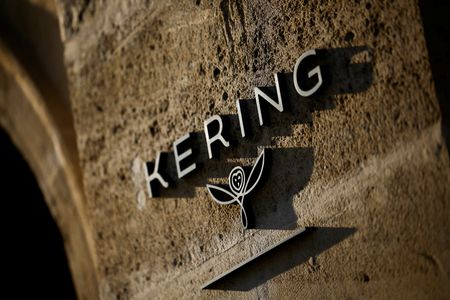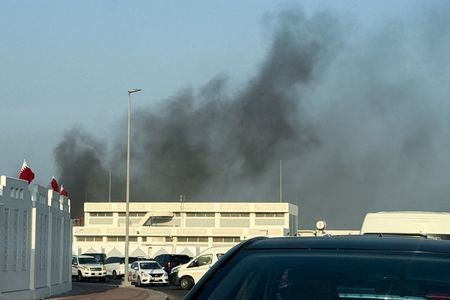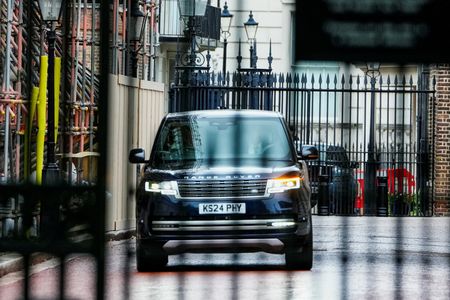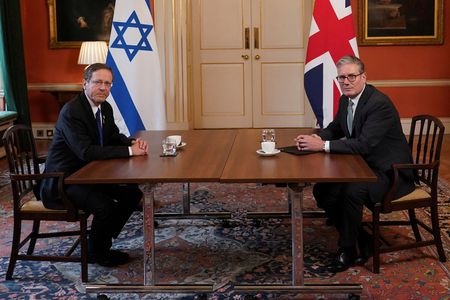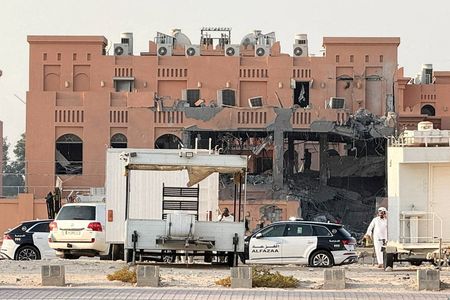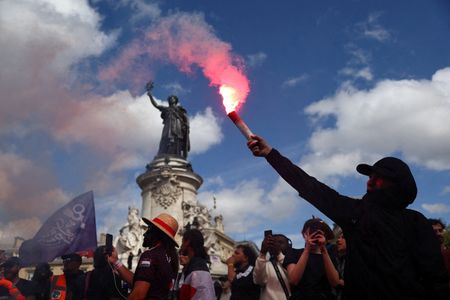BEIRUT (Reuters) – Lebanon’s parliament will attempt to elect elect a new head of state on Thursday, with officials seeing better odds of success in a political landscape shaken by Israel’s assault on Hezbollah and the toppling of the group’s ally Bashar al-Assad in Syria.
The post, reserved for a Maronite Christian in the sectarian power-sharing system, has been vacant since Michel Aoun’s term ended in October, 2022.
While there are always many Maronite hopefuls, including the leaders of the two largest Christian parties – Samir Geagea and Gebran Bassil – sources say the focus is currently on the following three names:
JOSEPH AOUN
General Joseph Aoun, 60, has been commander of the U.S.-backed Lebanese army since 2017, leading the military through a devastating financial crisis that paralysed much of the Lebanese state after the banking system collapsed in 2019.
On Aoun’s watch, U.S. aid continued to flow to the army, part of a U.S. policy focused on supporting state institutions to curb the influence of the heavily armed, Iran-backed Hezbollah, which Washington deems a terrorist group.
Shortly after his appointment, the army waged an offensive to clear Islamic State militants from an enclave at the Syrian border, drawing praise from the U.S. ambassador at the time who said the military had done an “excellent job”.
His training has included two infantry officer courses in the United States.
Lebanese politicians have said Aoun’s candidacy enjoys U.S. approval. A State Department spokesperson said it was “up to Lebanon to choose its next president, not the United States or any external actor”.
Hezbollah official Wafiq Safa has said last week there was “no veto” on Aoun. But sources familiar with Hezbollah thinking say it will not support Aoun.
His candidacy has also been opposed by Lebanon’s two largest Christian parties – the Lebanese Forces and the Free Patriotic Movement.
Three other former army chiefs – Emile Lahoud, Michel Suleiman and Michel Aoun – have served as president.
Parliament Speaker Nabih Berri has said the constitution would need to be amended in order for Aoun to take the post. It currently forbids a serving state official from becoming head of state.
JIHAD AZOUR
Azour, 58, served as finance minister in the Western-backed government of former Prime Minister Fouad Siniora between 2005 and 2008, a period of intense political conflict in Lebanon pitting factions backed by Iran and Syria against others supported by the West and Saudi Arabia.
Since 2017, he has served as Director of the Middle East and Central Asia Department at the International Monetary Fund (IMF). He holds a PhD in International Finance and a post-graduate degree in International Economics and Finance, both from the Institut d’Etudes Politiques de Paris.
He first emerged as a presidential candidate in 2023, when factions including both of Lebanon’s main Christian parties – the Lebanese Forces and the Free Patriotic Movement – voted for him. He received 59 votes.
Hezbollah and its closest allies voted for Suleiman Frangieh in that session – the last time parliament attempted to elect a head of state. Frangieh secured 51 votes.
Hezbollah at the time described Azour as a confrontational candidate – a reference to his role in the Siniora cabinet.
Azour said at the time that his candidacy was not intended as a challenge to anyone, but rather “a call for unity, for breaking down alignments and for a search for common ground in order to get out of the crisis”.
ELIAS AL-BAYSARI
Major-General Elias Baysari, 60, has been interim head of the General Security directorate since the term of his predecessor, Major General Abbas Ibrahim, ended in 2023 with no consensus among Lebanese factions on who should replace him.
The security agency Baysari runs is Lebanon’s most powerful internal security force, running Lebanon’s border crossings and domestic intelligence operations.
He was a little-known figure in Lebanese public life until his promotion to the head of General Security.
He holds a PhD in law from the Lebanese University.
(Writing by Laila Bassam and Tom Perry, Editing by William Maclean)

